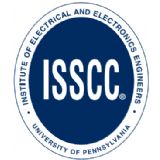|
Researchers aim for energy-harvesting CPUs
9/7/2011 |
|
|
A team of researchers from Virginia Commonwealth University (VCU) was awarded two grants totaling $1.75 million from the U.S. National Science Foundation and the Nanoelectronics Research Initiative of Semiconductor Research Corp. to create powerful, energy-efficient computer processors that can run an embedded system without requiring battery power.
The research, based on a paper published by the VCU research team in the August issue of the journal Applied Physics Letters, replaces transistors with special tiny nanomagnets that can also process digital information, theoretically reducing the heat dissipation by one 1,000 to 10,000 times, according to VCU.
The team, led by researchers at the VCU School of Engineering, is working with colleagues from the University of Virginia in Charlottesville, the University of Michigan at Ann Arbor and the University of California at Riverside to translate its theoretical work into a computing device.
"The purpose of this work is to establish a new paradigm for digital computing which will be extremely energy-efficient and hopefully allow us to pack more and more computing devices on a chip without having to worry about excessive heat generation," said Supriyo Bandyopadhyay, co-principal investigator for the study at VCU and professor of electrical and computer engineering in the VCU School of Engineering. "This will allow us to increase the computational prowess of computers beyond what is available today."
As engineers have shrunk the size of processors in accordance with Moore's Law, packing more and more transistors onto a chip, it has created a challenge in efficiently removing the heat that the transistors generate. Reducing the amount of heat dissipated when the transistor switches is considered to be the best approach to alleviating this problem.
According to Bandyopadhyay and Jayasimha Atulasimha, an assistant professor of mechanical and nuclear engineering in the VCU School of Engineering who serves as co-principal investigator on the project, this research could lead to a type of digital computing system ideal for medical devices such as processors implanted in an epileptic patient's brain that monitor brain signals to warn of impending seizures. This processor would run by harvesting energy only from the patient's head movements, without requiring a battery, they said.
In addition to the paper published in Applied Physics Letters, telated work by Bandyopadhyay and Atulasimha has also been published in the journals Physical Review and Nanotechnology.
More information about this research project and the grants can be found on VCU's website.
Scanning electron microscope image of tiny magnets with a diameter of ~100nm - which is approximately one-thousand times smaller than the diameter of a strand of human hair. Source: VCU.
Dylan McGrath |
|
|
|
|
|





